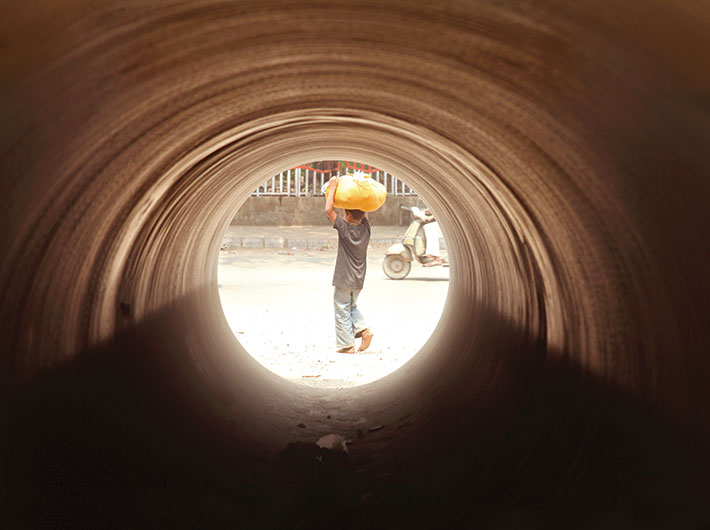Rural areas saw fastest decline in poverty, India on track to achieve SDG Target 1.2 well ahead of 2030 deadline
A record 13.5 crore people moved out of multidimensional poverty between 2015-16 and 2019-21, as per NITI Aayog’s report ‘National Multidimensional Poverty Index: A Progress Review 2023’, released on Monday.
The report was released by Suman Bery, vice-chairman, NITI Aayog, in the presence of members of NITI Aayog Dr. V K. Paul and Dr. Arvind Virmani, and B. V. R. Subrahmanyam, CEO, NITI Aayog, an official release said.
The report may be accessed at www.niti.gov.in
Based on the latest National Family Heath Survey [NFHS-5 (2019-21)], this second edition of the National Multidimensional Poverty Index (MPI) represents India’s progress in reducing multidimensional poverty between the two surveys, NFHS-4 (2015-16) and NFHS-5 (2019-21). It builds on the Baseline Report of India’s National MPI launched in November 2021. The broad methodology followed is in consonance with the global methodology.
The National MPI measures simultaneous deprivations across the three equally weighted dimensions of health, education, and standard of living that are represented by 12 SDG-aligned indicators. These include nutrition, child and adolescent mortality, maternal health, years of schooling, school attendance, cooking fuel, sanitation, drinking water, electricity, housing, assets, and bank accounts. Marked improvement is witnessed across all the 12 indicators.
According to the report, India has registered a significant decline of 9.89 percentage points in number of India’s multidimensionally poor from 24.85% in 2015-16 to 14.96% in 2019-2021. The rural areas witnessed the fastest decline in poverty from 32.59% to 19.28%. During the same period, the urban areas saw a reduction in poverty from 8.65% to 5.27%.
Uttar Pradesh registered the largest decline in number of poor with 3.43 crore people escaping multidimensional poverty. Providing multidimensional poverty estimates for the 36 states and union territories and 707 administrative districts, the report states that the fastest reduction in the proportion of multidimensional poor was observed in Uttar Pradesh, Bihar, Madhya Pradesh, Odisha, and Rajasthan.
Between 2015-16 and 2019-21, the MPI value has nearly halved from 0.117 to 0.066 and the intensity of poverty has reduced from 47% to 44%, thereby setting India on the path of achieving the SDG Target 1.2 (of reducing multidimensional poverty by at least half) much ahead of the stipulated timeline of 2030. It demonstrates the Government’s strategic focus on ensuring sustainable and equitable development and eradicating poverty by 2030, thereby adhering to its commitment towards the SDGs.
The government's dedicated focus on improving access to sanitation, nutrition, cooking fuel, financial inclusion, drinking water, and electricity has led to significant advancements in these areas. All 12 parameters of the MPI have shown marked improvements. Flagship programmes like the Poshan Abhiyan and Anaemia Mukt Bharat have contributed to reduced deprivations in health. Initiatives such as Swachh Bharat Mission (SBM) and Jal Jeevan Mission (JJM) have improved sanitation across the country.
The impact of these efforts is evident in the swift 21.8 percentage points improvement in sanitation deprivations. The provision of subsidized cooking fuel through the Pradhan Mantri Ujjwala Yojana (PMUY) has positively transformed lives, with a 14.6 percentage points improvement in cooking fuel deprivations. Initiatives like Saubhagya, Pradhan Mantri Awas Yojana (PMAY), Pradhan Mantri Jan Dhan Yojana (PMJDY), and Samagra Shiksha have also played a major role in significantly reducing multidimensional poverty in the country.
The remarkable progress achieved through extremely low deprivation rates especially for electricity, access to bank accounts and drinking water, reflects the Government's unwavering commitment to improving citizens’ lives and creating a brighter future for all. Consistent implementation across a diverse set of programmes and initiatives that have strong interlinkages has led to significant reduction in deprivations across multiple indicators.


